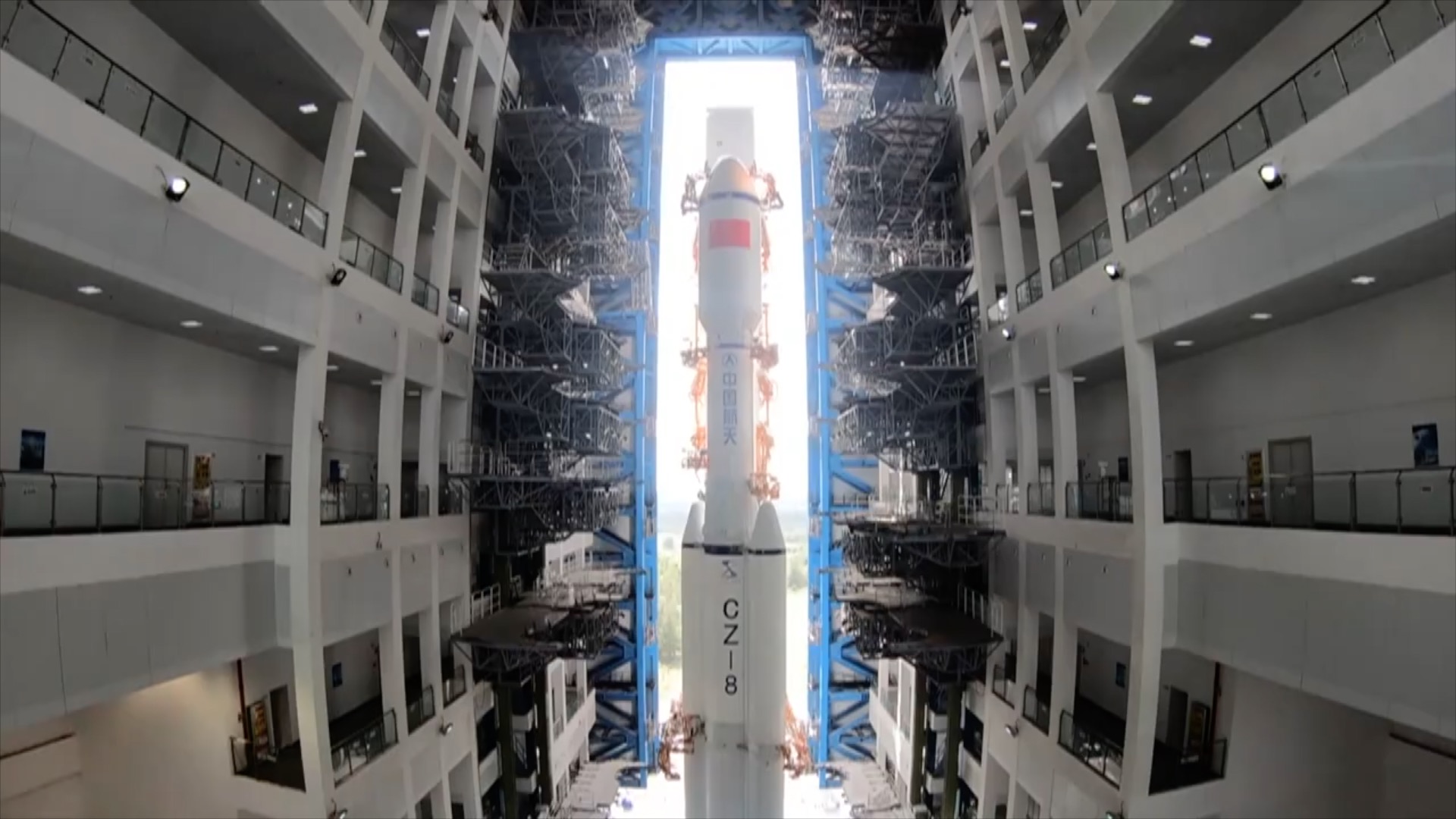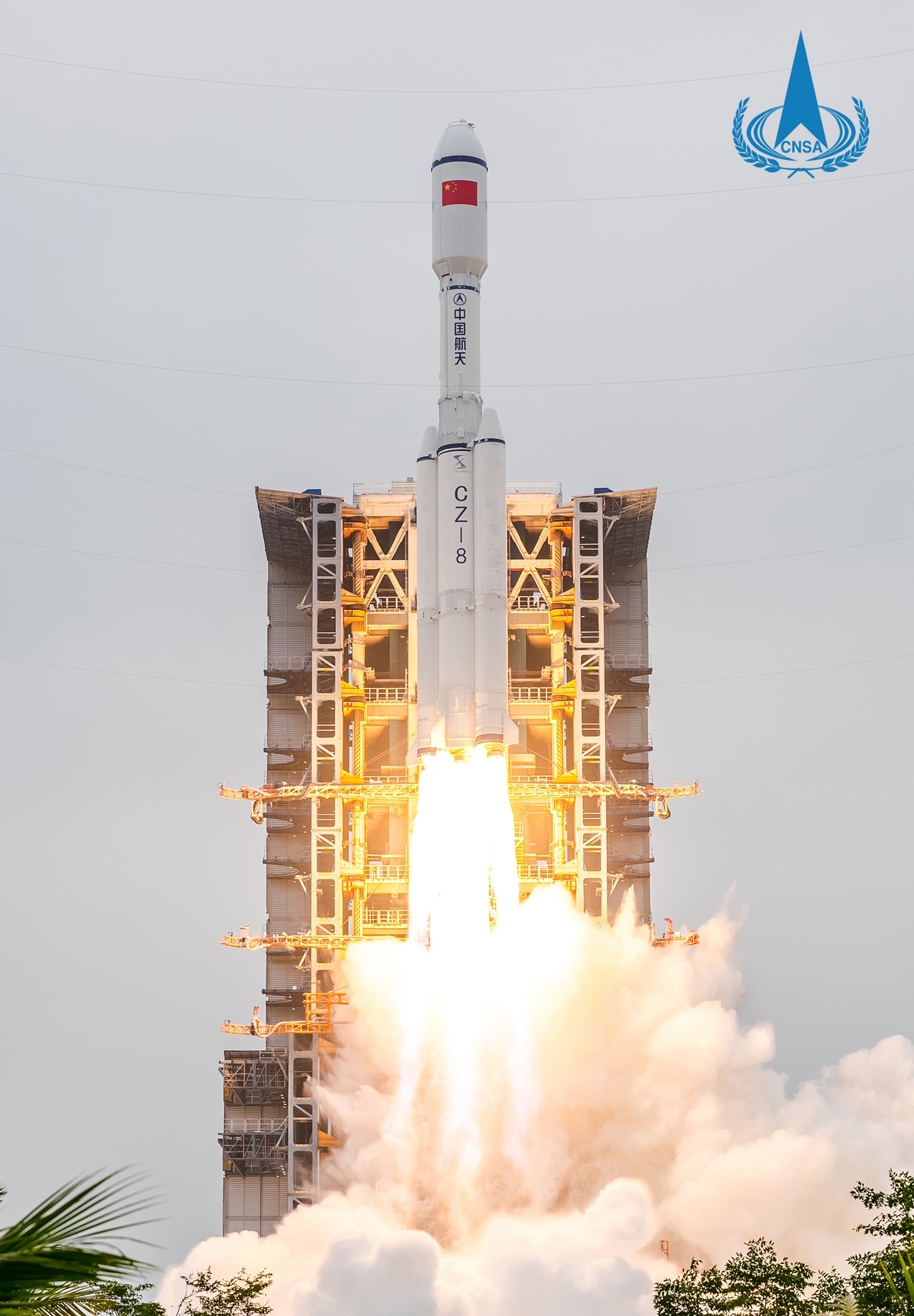00:52

China plans to launch its new generation carrier rocket Long March-8 Y2 between late February and early March this year, the country's leading rocket maker, the China Academy of Launch Vehicle Technology, said Friday.
After a week-long transportation by sea, the rocket arrived at Wenchang Spacecraft Launch Site in south China's Hainan Province on Friday, where its final assembly and testing work will be completed.
The scheduled mission will be the first launch of China's new generation carrier rocket this year.
The Long March-8 is a two-stage medium-lift rocket, which will mainly be used for sending payloads to low-Earth orbits (LEO) and sun-synchronous orbits (SSO).
The rocket is 50.3 meters tall, with a takeoff weight of about 356 tonnes. It's capable of sending a payload up to five tonnes to a SSO at an altitude of 700 kilometers, which is expected to fill the gap in China's launch capability to the SSO.
It can be launched from both the coastal launch site in Wenchang and Jiuquan Satellite Launch Center, the land-based launch site in northwestern China.
The rocket uses non-toxic propellants of liquid hydrogen and liquid oxygen, which generate water after combustion, ensuring that the launch process is environmentally friendly.
The Long March-8 Y1 made its maiden flight on December 22, 2020 from Wenchang, sending five satellites into designated orbit.

China's medium-lift carrier rocket Long March-8 Y1 blasts off at Wenchang Spacecraft Launch Site in south China's Hainan Province, December 22, 2020. /CNSA
China's medium-lift carrier rocket Long March-8 Y1 blasts off at Wenchang Spacecraft Launch Site in south China's Hainan Province, December 22, 2020. /CNSA
Compared with its predecessor, which had two side boosters, the Long March-8 Y2 will have no side boosters.
A planned future variant of the Long March-8 will be reusable, with its first stage and boosters retrieved through vertical landing.
It's part of China's endeavors to develop reusable launch vehicles, which will significantly reduce the costs of space launches and thus have bright prospects in the commercial launch market.
(Please contact us at techteam@cgtn.com if you have any feedback.)

